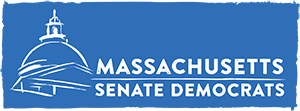New Massachusetts bill would create mobile vaccination program, multilingual campaign to increase access

Steph Solis | MassLive | February 4, 2021
As complaints pile up about the state’s vaccine rollout, Massachusetts lawmakers are proposing a bill that they say would expand access to the COVID-19 vaccine.
Democratic Sens. Becca Rausch of Needham, Sonia Chang-Diaz of Boston and Jo Comerford of Northampton on Thursday filed a bill, SD. 699, which aims to bring vaccines to communities of color that have not had access to appointments, as well as to Western Massachusetts and other parts of the state that haven’t been prioritized in the rollout.
Rep. Liz Miranda, a Boston Democrat, and Rep. Mindy Domb, an Amherst Democrat, are filing the House version.
“It is I think it provides a necessary roadmap for the Legislature and the administration to consider as we go deeper and deeper into Phase 2,” Comerford said in a phone interview. “Phase 2 is actually very high stakes and we have to get it right.”
While doctors, first responders and home health aides in Phase 1 could get vaccines with helps from their employers, those in Phase 2 learned they might be on their own when it comes to booking appointments.
The bill would create a mobile vaccination program, mandate free COVID-19 testing at each Gateway City and direct resources to increasing access to vaccines in communities of color and regions of the state that don’t have a nearby mass vaccination site.
“There is a lot to get done at once here as a commonwealth, but we cannot expect that equity is going to just sort of happen by itself or accidentally,” Chang-Diaz said in an interview. “We have to really be intentional.”
Only then, she said, can Massachusetts come close to chipping away at decades and centuries of mistrust against the government that resulted from experimentation, mistreatment and unequal access to health care for people of color, immigrants and low-income workers.
Gov. Charlie Baker said residents should expect to see up to 120,000 vaccine appointments available next week, including 55,000 new appointments that were announced earlier this week. But many of those appointments are in predominantly white neighborhoods or require access to a car.
No mass vaccination sites exist in the state’s Black or brown neighborhoods. Even the launch of the Reggie Lewis Center in Roxbury has raised questions as it’s not in the heart of Boston’s Black neighborhoods and has drawn predominantly white patients.
“The rollout has been a fundamentally flawed process, it’s design inherently excludes immigrants and people of color and exacerbates the existing inequities we have experienced in our healthcare institutions,” said Miranda, who represents Roxbury. “There is no equitable recovery from the COVID-19 pandemic without prioritizing the communities who remain most vulnerable. Black and brown people have been disproportionately diagnosed with COVID-19 and disproportionately die from COVID-19.”
Western Massachusetts has one mass vaccination, the Eastfield Mall in Springfield. Residents in Hampshire and Franklin counties would need to drive, and those without access to a car have no way of reaching the site. Even for residents in the west side of Springfield, the site could take nearly an hour to reach by bus.
“Even those who are eligible for a COVID vaccine cannot get an appointment unless they have internet and car access, ample time to spare, literacy in specific languages and technological proficiency,” Rausch said in a statement.
Under the bill filed Thursday, Massachusetts would create a mobile vaccination program that could travel to cities and towns with the highest COVID-19 rates. The mobile program could also reach communities that lack public transit, such as parts of Central and Western Massachusetts.
“The mobile program going into deeply affected communities and being available to anyone helps to bridge the transportation and access gaps which may be present in those communities that exist across populations,” Domb said.
She and Comerford were among nearly a dozen legislators who signed onto a letter urging the Baker administration to add vaccination sites across Western Massachusetts, particularly Hampshire and Franklin counties.
While the state does not have a phone bank set up, lawmakers proposed maximizing federal reimbursement to help staff such a system to improve the rollout. One example lawmakers suggested was mobilizing the National Guard to help staff the phone bank to help people get appointments.
The bill would also create a multilingual mass media campaign to encourage people in the hardest-hit communities to get vaccinated, expand free testing to all Gateway Cities with no appointment needed and appoint an expert on vaccine disinformation to the state’s Vaccine Advisory Group.
The Baker administration would also have to appoint a vaccination equity and outreach director as part of the senior leadership of the COVID-19 Command Center. The director, who would report to Health and Human Services Secretary Marylou Sudders, would focus on disparities in vaccination rates based on racism, government mistrust and access to transportation and other resources.
Chang-Diaz said having a state leader dedicated to vaccination equity could ensure the issue doesn’t get eclipsed by concerns other problems, such as hospital bed availability or the state’s ventilator’s supply.
“I think that there is a general belief in and support for the idea of equity and that we all need to be thinking about equity in the command center, I really believe that, but it is so easy under the monumental pressures that they are under for that work to just sort of get back-burnered,” Chang-Diaz said.
“It just stands to reason that someone needs to be solely dedicated to this job,” she added.
